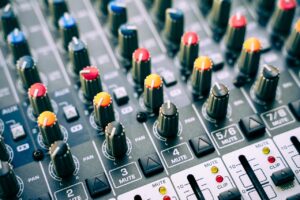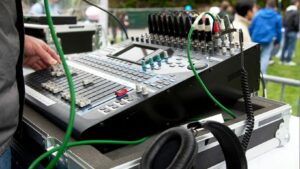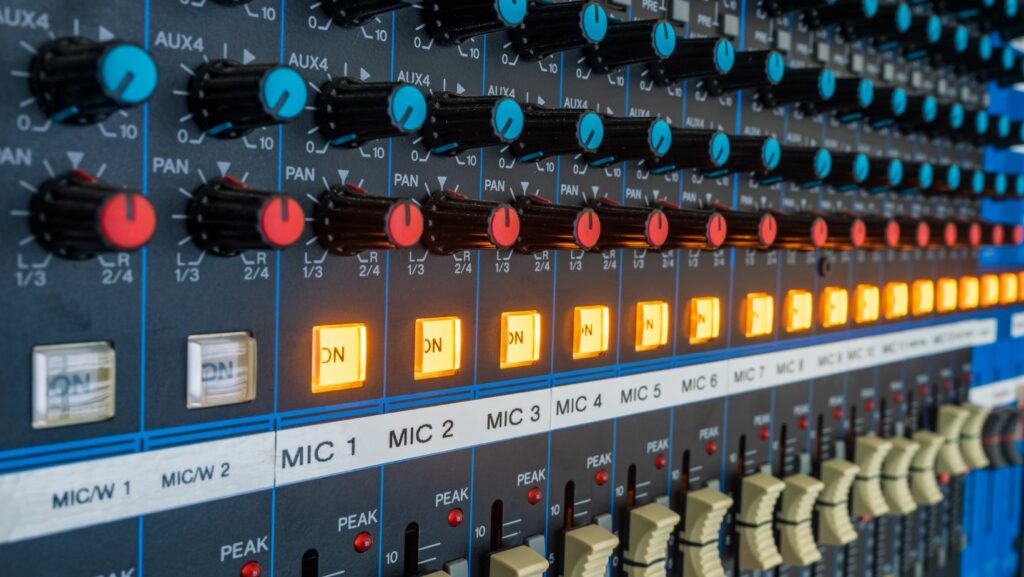Sound engineering is both an art and a science that shapes our experiences with music, movies, and live performances. For those passionate about audio, pursuing a career in sound engineering can be exciting and rewarding. With the right guidance and resources, anyone can master this field, whether as an aspiring professional or a hobbyist looking to enhance their skills.
How To Learn Sound Engineering

Understanding sound engineering requires more than operating equipment; it demands a keen ear, creativity, and technical knowledge. Sound engineering encompasses the creative and technical processes of capturing, manipulating, and reproducing audio. This multi-faceted discipline requires skills in acoustics, electronics, and digital audio technology.
Acoustics is essential, as it deals with how sound waves behave in different environments. Knowledge of room acoustics helps sound engineers make informed decisions about microphone placement and sound system setup. Proficiency in operating audio equipment like mixers and amplifiers is crucial, as is familiarity with software such as Pro Tools and Ableton Live for editing and mastering tracks. Critical listening skills are vital, allowing engineers to discern subtle audio nuances and adapt to evolving technologies.
Aspiring sound engineers can pursue formal education through degree programs or technical courses that offer both theoretical foundations and hands-on experience. Internships and entry-level roles provide real-world experience and valuable networking opportunities, while collaboration on projects with artists enhances practical skills and portfolio development.
Essential Skills and Knowledge
Sound engineering demands a diverse skill set, including:

- Audio Theory: Understanding sound principles like waveforms and frequency is crucial for making precise adjustments.
- Equipment Proficiency: Familiarity with mixers, microphones, and digital audio workstations ensures efficient workflow.
- Acoustics Awareness: Grasping room acoustics optimizes sound capture and playback.
- Digital Skills: Proficiency in software like Pro Tools is essential for high-quality audio production.
- Problem-Solving: Troubleshooting technical issues quickly is imperative for maintaining production quality.
- Critical Listening: Developing listening skills helps engineers adjust sound levels and effects effectively.
- Communication: Clear communication fosters successful collaborations with artists and clients.
Educational Paths

Various educational paths exist for sound engineering. Degree programs in audio engineering or music production provide comprehensive training in digital audio technology and acoustics. Institutions like Berklee College of Music offer structured curriculums with hands-on experience. Technical courses focus on practical skills in areas like mixing and live sound production, often available at community colleges.
Online platforms like Coursera and Udemy offer flexible learning options, covering a broad range of topics from audio fundamentals to advanced techniques. Gaining practical experience through internships in studios or live event companies allows individuals to work with professionals, providing invaluable insights into sound engineering in action.
Practical Experience

Gaining practical experience is vital in sound engineering. Internships in recording studios expose aspiring engineers to real-world projects, including setting up recording sessions and managing live sound. Volunteering for live events allows for participation in soundchecks and troubleshooting audio issues.
Creating home studios and collaborating on independent projects further enhances practical knowledge, building confidence in using various tools and software. Workshops and seminars also help expand skillsets and keep professionals updated on industry advancements.
Tools and Equipment

Sound engineering relies on specific tools essential for audio production. Microphones, such as dynamic and condenser types, capture audio, while mixers control input signals. Audio interfaces convert analog to digital signals, and headphones are crucial for monitoring sound. Digital Audio Workstations like Pro Tools facilitate editing and mixing.
Mastering these tools empowers sound engineers to innovate and adapt, enhancing their audio projects’ success across various mediums.
Tips for Success
Aspiring sound engineers should embrace continuous learning and engage in internships and collaborations to hone skills and expand networks. Mastery of essential tools enhances efficiency and creativity, while developing critical listening and communication skills fosters successful collaborations. Ultimately, a passion for sound and a commitment to innovation will drive success in this dynamic industry.

